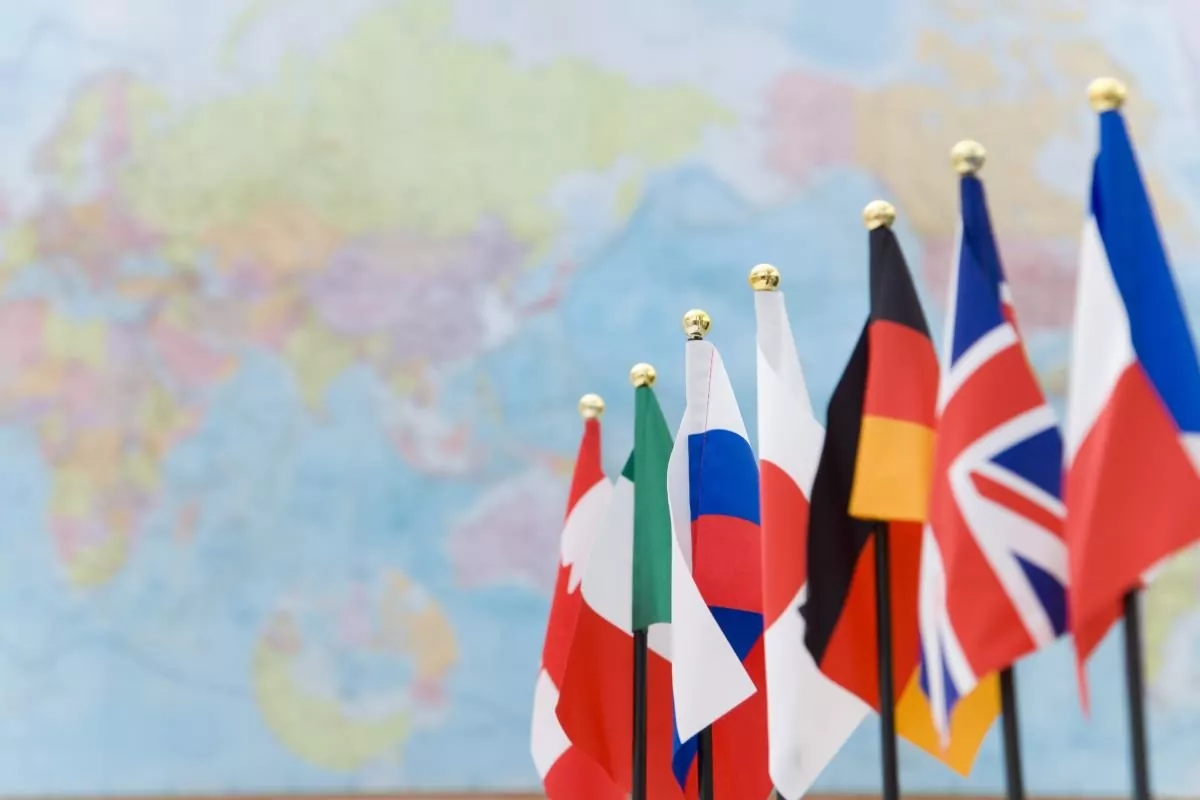To ensure a better recovery from COVID-19, leading countries championing climate action must deliver on three main areas of economic and financial policy action:
- averting crises of financing for economic recovery worldwide
- ensuring that economic recovery spending is sustainable
- advancing systemic financial reforms for resilience and sustainability
To achieve these goals, countries must cooperate closely across key fora including the UK’s G7 summit, the G20 processes, and beyond, with a view to landing specific policy outcomes in the run-up to COP26. As part of its work on better recovery, E3G is producing a series of two-page briefings, each focused on a specific element of economic and financial policy underpinning one or more of the goals above. This page will be updated as the briefings are published.
Major public recovery spending decisions in 2021 will either lock the world out of or into a trajectory to climate safety. To meet a shrinking window for action, the G7 must increase ambition and coordination on greening G20 recovery spending.
2021 will be “a year to revive or lose the Paris Agreement”, the IMF’s Kristalina Georgieva has warned the Italian G20 Presidency. To respond to calls to halve emissions before 2030 (IPCC, 2018), recovery spending should support shifting infrastructure to net-zero instead of maintaining carbon-intensive economies.
The G20 accounts for over 80% of global emissions, and so progressive efforts must ensure that green recovery measures are taken forward in those countries. G7 countries must lead the way in putting climate action at the heart of domestic recovery plans, in order to be able to showcase benefits and engage in international leadership. Early spending to contain the crisis has been directed towards the existing, fossil-fuel-based economy. However, the international pivot from crisis relief to recovery investment has not yet been completed, and the G20 will be an important forum for driving change.
Read the briefing in full here.
Multilateral Development Banks (MDBs), as convenors of public finance and catalysts of private investment, are well-positioned to facilitate a green, resilient and equitable global recovery. However, they show signs of being financially constrained in their response to the COVID-19 crisis. G7 shareholders should pursue a multi-part agenda to ensure that MDBs have sufficient resources for this task, whilst driving climate reforms, enabling MDBs to address the triple challenge of debt sustainability, economic recovery, and climate transition.
MDBs are key pillars of the global response to the current economic crisis, supporting both immediate relief and lasting recovery. They will play a crucial role in ensuring that all low- and middle-income countries can achieve an equitable and green recovery. In addition to being significant players in the public finance ecosystem, MDBs also can play a transformational role within the financial system, acting as knowledge hubs, standard setters, and delivering long-term value for countries.
Against this backdrop, there is a shift in global climate ambition. The United States has re-entered climate diplomacy, the EU’s developing ‘green deal diplomacy’ and green recovery plans, whilst Asian countries are also committing to net-zero. Combined, these factors create a new environment for MDB ambition.
Read the briefing in full here.
A net-zero financial system, which aligns with and enables transition to net-zero in the real economy, will be essential to delivering the Paris Agreement. The UK G7 has an opportunity to accelerate the shift to a dynamic net-zero finance sector.
G7 countries have all made commitments to achieve net-zero emissions by mid-century, which has created a clear signal for markets. Market momentum is also growing. Individual financial firms which have made net-zero announcements include Allianz, HSBC, BlackRock, Nordea, Aviva, Morgan Stanley and Santander. The UN-convened Net Zero Asset Owner Alliance is joined by new initiatives such as the Net Zero Asset Manager Initiative. The Glasgow Financial Alliance for Net-Zero is now bringing together leading initiatives under the COP26 Race to Zero.
This positive trend shows strong appetite from financial institutions to transition to a net-zero finance sector. To make this ambition a reality, there is a clear enabling role for governments and policymakers.
Read the briefing in full here.
International approaches to green recovery will require a common approach to what can be considered ‘green’ investments. As leaders in this field, the G7 should work together to ensure that international norms for ‘defining green’ are established, and should be champions of this agenda within the G20.
The global economic transition to climate safety will require trillions of dollars in financial flows to be mobilised from both public and private sector sources.
In order to guide, measure and manage green investment flows, the EU and other countries have been building dynamic investment taxonomies. These typically define green economic activities which are aligned with the Paris Agreement, and sometimes also address ‘transition’ activities which can mark an interim stage in the transition to net zero emissions.
Read the briefing in full here.
Green recovery can be guided by national climate plans which countries have been publishing since 2015. Climate policy goals are increasingly supported by investment plans — however, there is much progress to be made in order to seize low-hanging fruit and fully mobilise capital markets to support national climate goals.
The UK G7 and Italy G20 can meet this challenge by creating new international institutional architecture to bring financial actors together to support financing for national climate plans, particularly for developing countries, to Build Back Better.
Organisations like the NDC Partnership and Multilateral Development Banks have worked to support the development of Investment Plans which set a pathway to financing actions listed in NDCs. However, there are considerable gaps in coverage and quality of national climate-related investment plans, which do not always identify readily investable opportunities where private finance could potentially be mobilised, and do not always map concessional finance needs to specific investments and activities. Despite the scale of capital markets, investments fall critically short of what is required.
The COP26 Presidency has prioritized investment mobilisation — its COP26 Private Finance Strategy proposes creation of platforms to connect private “capital in principle” to MDBs/DFIs and technical capacity, with a view to building pipelines of investable projects. The UK and Chilean High-Level Champions have called for efforts to harness significant interest from market actors in investing in developing country NDCs and mobilizing trillions.
Meanwhile, the US administration has committed to creating a climate finance plan to support developing countries with climate action, including promoting flows of capital to climate-aligned investments.
Read the briefing in full here.
Climate change is a macro-critical issue for countries and will have an impact on prosperity and economic growth. To mitigate and avert the macro-economic impacts emerging from climate change, these risks need to be considered within economic and financial assessments domestically and internationally.
The IMF sets the direction of travel for global economic and financial policy and contributes to safeguarding stability in times of crisis. Yet, it has made slow progress in integrating climate into its toolkit and lending policies, whilst taking a narrow view with a focus on natural disasters. Less than half of 100 Article IV country reports published from 2019/20 referenced climate, with an emphasis on vulnerable countries. Moreover, climate has been excluded in the Financial Sector Assessment Programs.
To remain relevant in a fast-changing world the IMF needs to move further and faster. A key element of the IMF’s toolkit is its Comprehensive Surveillance Review (CSR), which reviews IMF’s efficacy in assessing global economic conditions, and the policy advice it delivers to all IMF’s member states (190 countries). The CSR will shape IMF policy for the next decade
2021-2030.
Read the briefing in full here.
In addition to new green investments, green recovery will require the end of financial flows to unsustainable economic activities. In recent years there have been important moves to end international public fossil finance, and in 2021 leading G7/G20 countries and actors can work together to make this trend the new norm.
The late 2010s demonstrated both the imperative of swift emissions reductions (IPCC, 2018) and the new economics of energy, with renewables increasingly replacing fossil fuels as the cheapest form of power generation worldwide. In 2019, the European Investment Bank (EIB), the largest Multilateral Development Bank (MDB), became the first to initiate a fossil fuel finance phase-out. In 2020, the UK became the first major economy to commit to ending its overseas public fossil finance. The EU and US have also made similar statements of intent.
2021 must be the year this trend goes mainstream, signalling a beginning of the end of public fossil finance and a pivot to clean energy investment. This will require a decisive wave of new fossil finance phase-out commitments in 2021, both from countries and finance institutions.
There is clear potential for further action at national level. In addition a significant number of the over 400 public development banks (mobilised for climate action at the 2020 ‘Finance in Common’ conference) are likely to be supportive.
It will be imperative to ensure that phasing out public fossil finance is not perceived as a matter solely for developed countries, but instead understood as vital for developing country economic success.
Read the briefing in full here.


